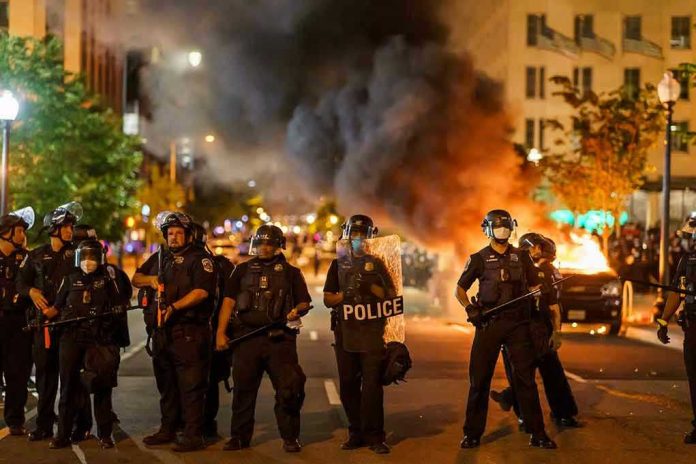
Political violence threatens to erode America’s democratic values, with perceptions of its acceptance rising alarmingly.
Story Highlights
- 85% of Americans perceive an increase in political violence.
- Bipartisan nature of violence targets both conservative and liberal figures.
- Record levels of left-wing attacks in 2025, with ongoing bipartisan violence.
- Experts warn of normalization and its impact on democracy.
Public Perception of Increasing Violence
A recent Pew Research Center survey reveals that 85% of Americans believe politically motivated violence is on the rise. This alarming perception is shared across political lines, with both conservative and liberal figures falling victim to threats and attacks. High-profile incidents, such as the murder of conservative commentator Charlie Kirk, underscore this bipartisan victimization.
Despite the perceived increase, experts highlight that actual violence remains statistically rare compared to historical peaks. However, the acceptance and normalization of political violence pose a significant threat to democratic values and the fabric of American society.
Recent Incidents and Trends
Throughout 2025, the United States has witnessed a surge in politically motivated violence, with both left and right-wing groups involved. This year marked a record number of left-wing attacks, yet violence from both sides persists. Incidents targeting Republican and Democratic officials, as well as government facilities, highlight the ongoing threat.
Law enforcement agencies are under increased scrutiny, tasked with preventing and responding to these acts amidst declining public trust. Meanwhile, civil society organizations are promoting resilience and nonviolent engagement to counter the growing polarization.
Potential Impacts and Expert Warnings
The implications of rising political violence are profound. In the short term, increased security measures for political figures are likely, along with heightened public anxiety. Long-term impacts could include the erosion of democratic norms and a troubling normalization of violence as a political tool.
Experts from organizations like the Bridging Divides Initiative and CSIS warn that misperceptions about opponents’ support for violence exacerbate polarization. They call for improved monitoring and community engagement to address the issue effectively.
Sources:
Americans Say Politically Motivated Violence Is Increasing
Political Violence: Experts Weigh In
Key Political Violence and Resilience Trends
Left-Wing Terrorism and Political Violence in the U.S.
Politically Motivated Violence Rare in the U.S.














